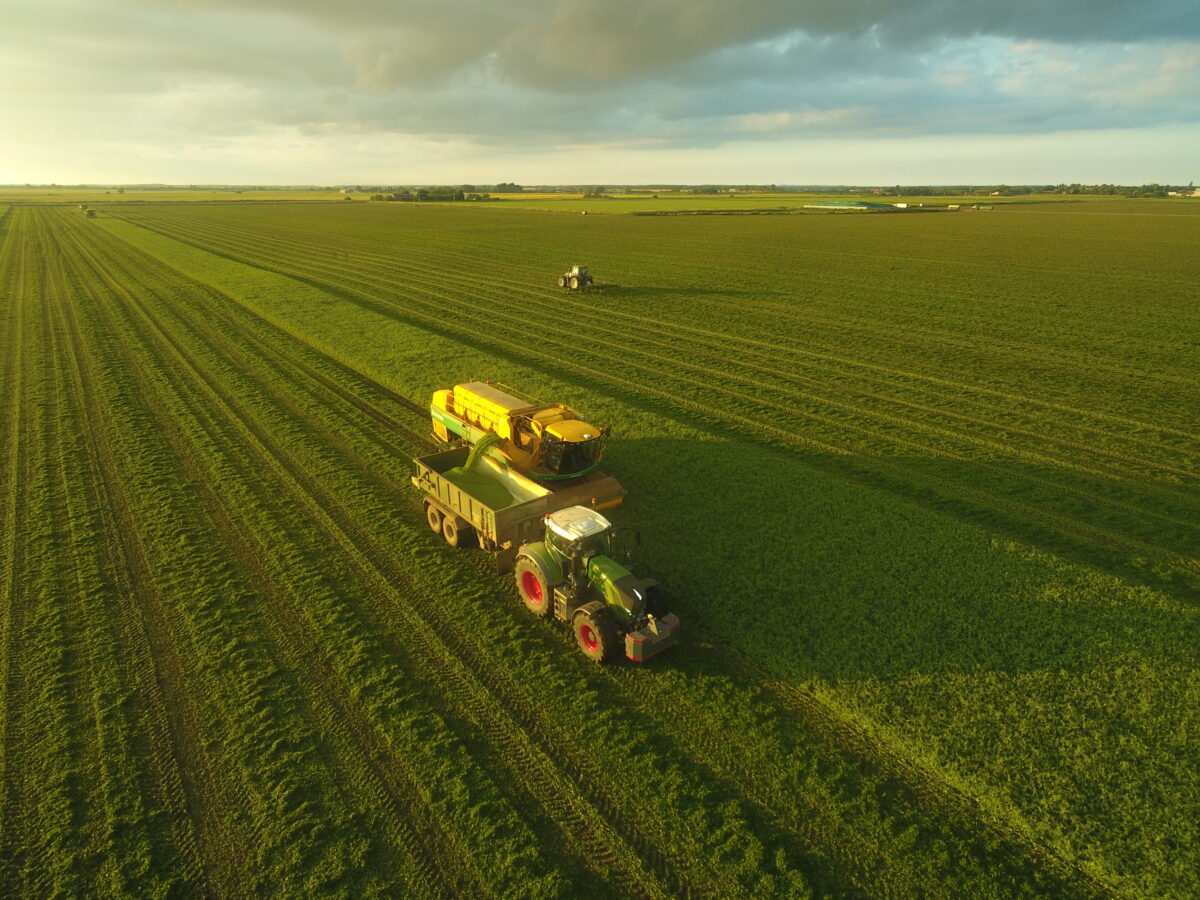Peas: Good To Eat, Good For The Soil
Our 2021 pea harvest campaign is now complete. The 18-strong team has worked around the clock for 58 days from June through to August to collect over nine thousand tonnes of quality peas, providing nutrition not just for consumers but also for the valuable soils across Dyson Farming’s land.
The importance of peas
Their high nutrient content, sweet taste, crunchy texture, and minimal preparation time makes peas the ideal ingredient or accompaniment for many meals.
Peas also play an important role in how we farm and look after the environment, particularly soils. As they grow, peas capture nitrogen from the air which they use to flourish through the whole growing season. They also ‘fix’ a proportion of this nitrogen into the soil, making them great to grow and rotate across our farms, keeping the soils healthy and contributing towards Dyson Farming’s sustainable farming system.
Rotating crops around different fields is important. Planting the same crop in the same place year after year drains nutrients from the soil that future crops need to thrive. This is why we won’t grow our peas on the same land for 8-10 years in order to preserve optimum soil health.
Planning and technology
Growing a high-quality pea crop requires meticulous planning. Before planting the seeds, individual fields are mapped using technology such as satellite imagery and electric conductivity scanning to assess soil structure. This allows us to vary the number of seeds we plant in different places to optimise crop performance, meaning we can plant more seeds into the poorer areas of soil and fewer seeds into the better areas, resulting in a more even crop from edge to edge.
When the crop reaches maturity, there is a window of approximately 48 hours during which the peas will be at their optimum quality. We know when the peas are ripe for harvest by using a ‘tenderometer’ which tests the growing peas in each field and informs us when the peas are at their best. If the planning is right, we can harvest peas at the right time and in the right field to achieve a consistent supply of high-quality peas.
Harvesting
The peas are harvested using a bespoke pea viner, which removes the pea pods from the plant and then open the pods to collect the individual peas. These freshly harvested peas are transported to the factory where they are washed, blanched and frozen within 150 minutes, to lock in the freshness and nutrients of each pea.
Dyson Farming’s 2021 pea harvest has been a good one. The weather has been kind, allowing us to keep to the planned harvest schedule. Peas need temperatures that are cool, but not too cold, to thrive.
But the good weather has also meant there was no rest for the harvest team, from the day harvest started all the way through to the last pea being delivered for freezing. However, the team has risen to the challenge and produced a fantastic crop of peas.
Dyson Farming Assistant Farm Manager, Rhys Jones reflects on the season:
“Credit goes to the team, who have worked so hard in what has felt like a long season, just because we have not stopped. We are also grateful for the support of the local haulage companies, who have helped move the crop from the fields to the freezer factory with great efficiency.”
What is next for our peas?
Once frozen and packed, our peas are sent directly to retailers and caterers like Baxter Storey and Caterlink for their chefs to use in restaurants, dining rooms and school canteens across the country.
This year we are delighted that Dyson Farming’s peas will also be available in Marks and Spencer stores. This required us to pass the Marks and Spencer quality control audit and put in place a system to deliver peas from field to the factory in 120-minutes, hence the name ‘speedy peas’. These peas will be identifiable in Marks and Spencer stores with Dyson Farming’s name on the packaging this autumn.
Preparing for the next season
With the completion of the 2021 harvest, the team are now concentrating on gathering data so they can begin planning for the next crop.
There is also the job of maintaining the machines. With the pea viners running continuously for 24 hours over 58 days during harvest, they are worked hard. The team wash them down before the winter overhaul, when they will be sent away to be stripped down and rebuilt.
Rhys Jones, on the future of Dyson Farming peas:
“Our focus is always to look after our soils and improve the quality of our crop. Innovations in technology and new pea varieties will be factored in when making plans for the 2022 crop. It’s important we get these plans right so we can enjoy another great season next year.”
The Estate Office,
Cyclone Way, Nocton,
Lincoln LN4 2GR
